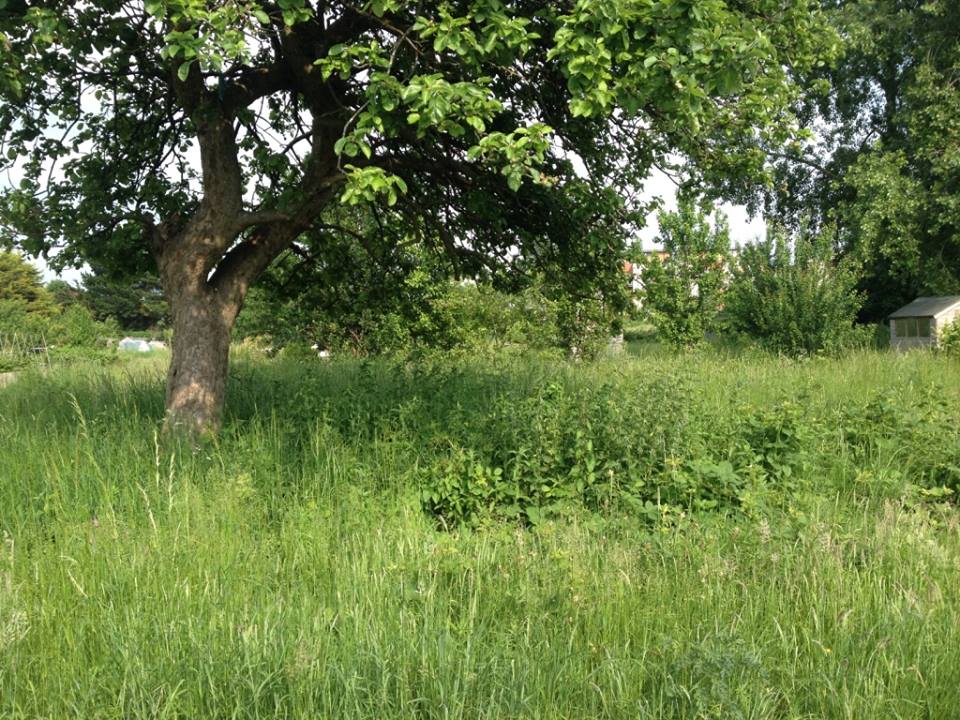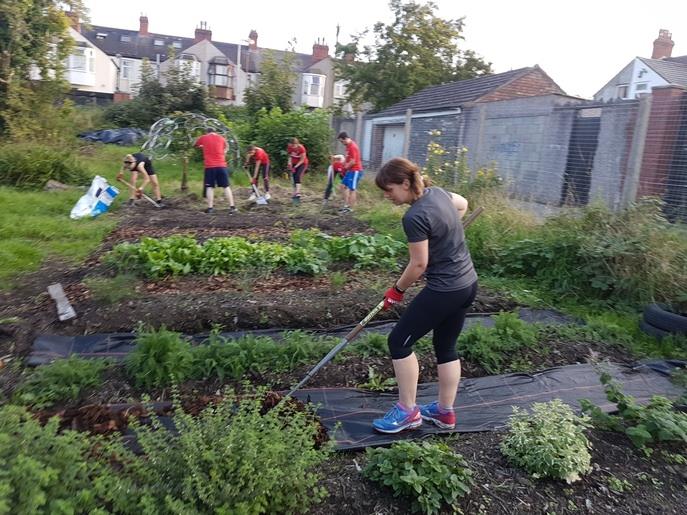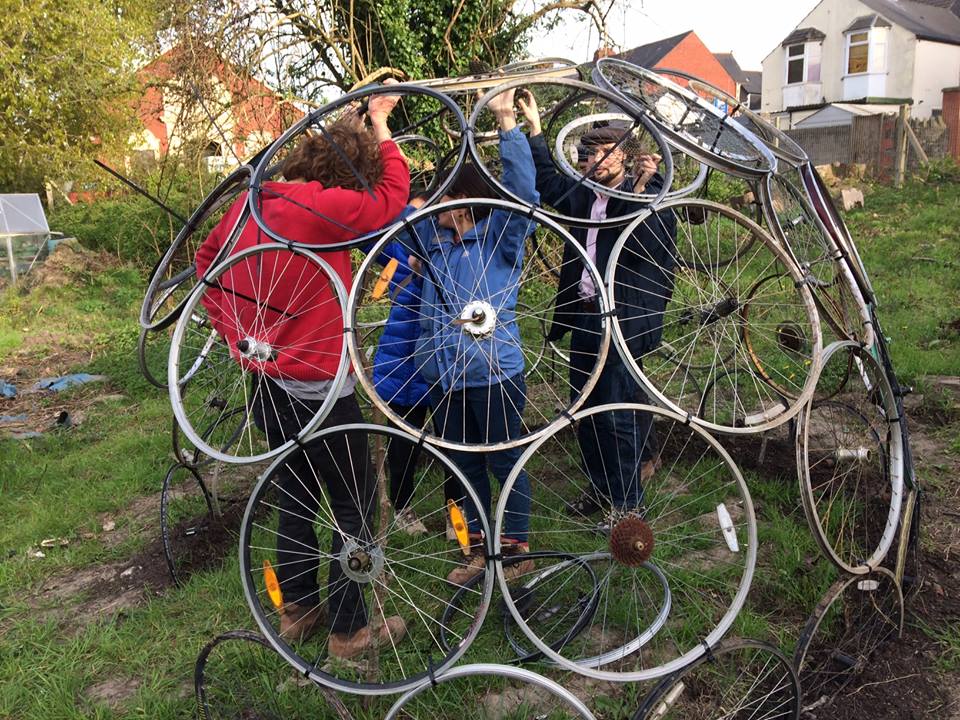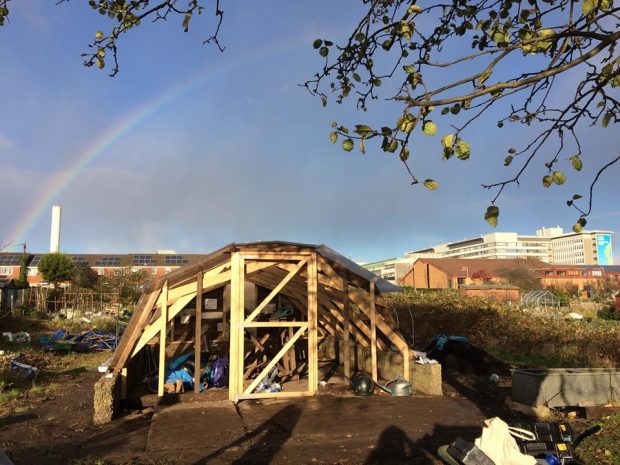 Through gardening, cooking and eating this green-fingered group nurtures inter-cultural understanding, community integration, health and well-being
Through gardening, cooking and eating this green-fingered group nurtures inter-cultural understanding, community integration, health and well-being
GLOBAL Gardens is a community growing project based at the Flaxland Allotment site on Sachville Avenue, just off Whitchurch Road.
The group meets every Saturday afternoon between 1pm and 5pm to put in some hard graft while learning hands-on skills.
The project aims to create a growing space to bring together the community in the sharing of foods and cultures. It also works with the Trinity Centre, which supports refugees and asylum seekers in Cardiff.
The group was set up in the summer of 2016 by avid gardener Poppy Nicol, when it was given a large plot of land on the allotment site for the community project.

The plot before the group set to work
It has taken an enormous amount of work to clear the ground of litter, waist-high weeds and thick brambles but, with the help of many enthusiastic volunteers, the site has been transformed into a beautiful space. A kitchen garden is beginning to evolve for all the community to enjoy.

Volunteers working on the herb garden
Since last summer, the group have dug rows of herbs, vegetable patches and constructed a “Velodome”, a dome made out of old bicycle wheels which will be used to grow hops up.

The almost complete Velodome made of old bicycle wheels and cable ties.
The group’s latest project has been building a large greenhouse in collaboration with Cardiff University School of Architecture. A total of 120 first-year architecture students worked in four teams over a five-week programme to construct the greenhouse.
The programme was organised and led by Sergio Pineda, senior lecturer at the School of Architecture and First Year Chair.
Mr Pineda said: “We set out the project as an initiative to contribute towards the Global Gardens project, helping to consolidate a space for urban farming and cultivation of food in the city.
“This made a huge difference in terms of the sense of commitment of our group towards the project. It felt like meaningful action, towards a worthwhile cause. We are delighted to have been able to contribute to the Global Gardens project and to support their aims.”

The greenhouse – work in progress
Over the winter months, Global Gardens are going to use the greenhouse for seed propagation and germination of plants.
Another aspect of the project is the community supper clubs which are run on the last Tuesday of each month. Different volunteers prepare a meal for everyone using the crops ready to harvest from the garden. Through this, participants share skills and knowledge about cooking and growing food.
Why not take a leaf out of Global Gardens’ book and try eating seasonal produce? Poppy Nicol from Global Gardens said: “I think locally grown is fresher and as a result tends to contain more nutrients, particularly if organic.
“Seasonal food also helps us connect with the seasonal cycles. I know I love squash, roots and even swede as the winter draws in, whilst in spring the new green shoots are what our body craves. For me, it helps me remember the cycle of life.
“Plus eating seasonally and working with what is in abundance encourages us to be creative in the kitchen. How else would we have arrived at apple pie, apple chutney or even cider?”
There are many benefits of eating seasonal produce grown in the UK. Here are a few:
It tastes better
Jamie Oliver said that: “Eating with the seasons means you can look forward to having things at their best. Food that’s in season is generally fresher, tastier and better for you than food grown out of season. It’s had time to grow and develop all of its nutrients and flavours.”
It’s more sustainable and better for the environment
By eating seasonal vegetables, we are most likely to be buying produce grown in the UK. The food we eat will have travelled less far to arrive on our plates, meaning that it has a lower carbon footprint. For example, buying strawberries in December will probably mean that they have been grown and imported from somewhere sunny.
It’s better on the budget
Produce that is naturally ready for harvest at this time of year will not need to be grown in special conditions such as heated greenhouses and with fewer pesticides and fertilisers.
Supporting local farmers
Poppy Nichol said: “I think it’s also important economically to support local organic growers and producers. If we don’t support them how can we expect to access fresh local organic produce.”
Not everyone has the privilege of being able to afford the time or money to wander down to their local farmers’ market to pick up locally grown produce, but that shouldn’t stop you. You can start by taking a look at where the food you pick up in the supermarket comes from and learning when different produce is naturally ready to harvest.
Vegetables harvested in the winter months include: leeks, parsnips, spinach, butternut squash, kale, cabbage, mushrooms and Brussel sprouts.
